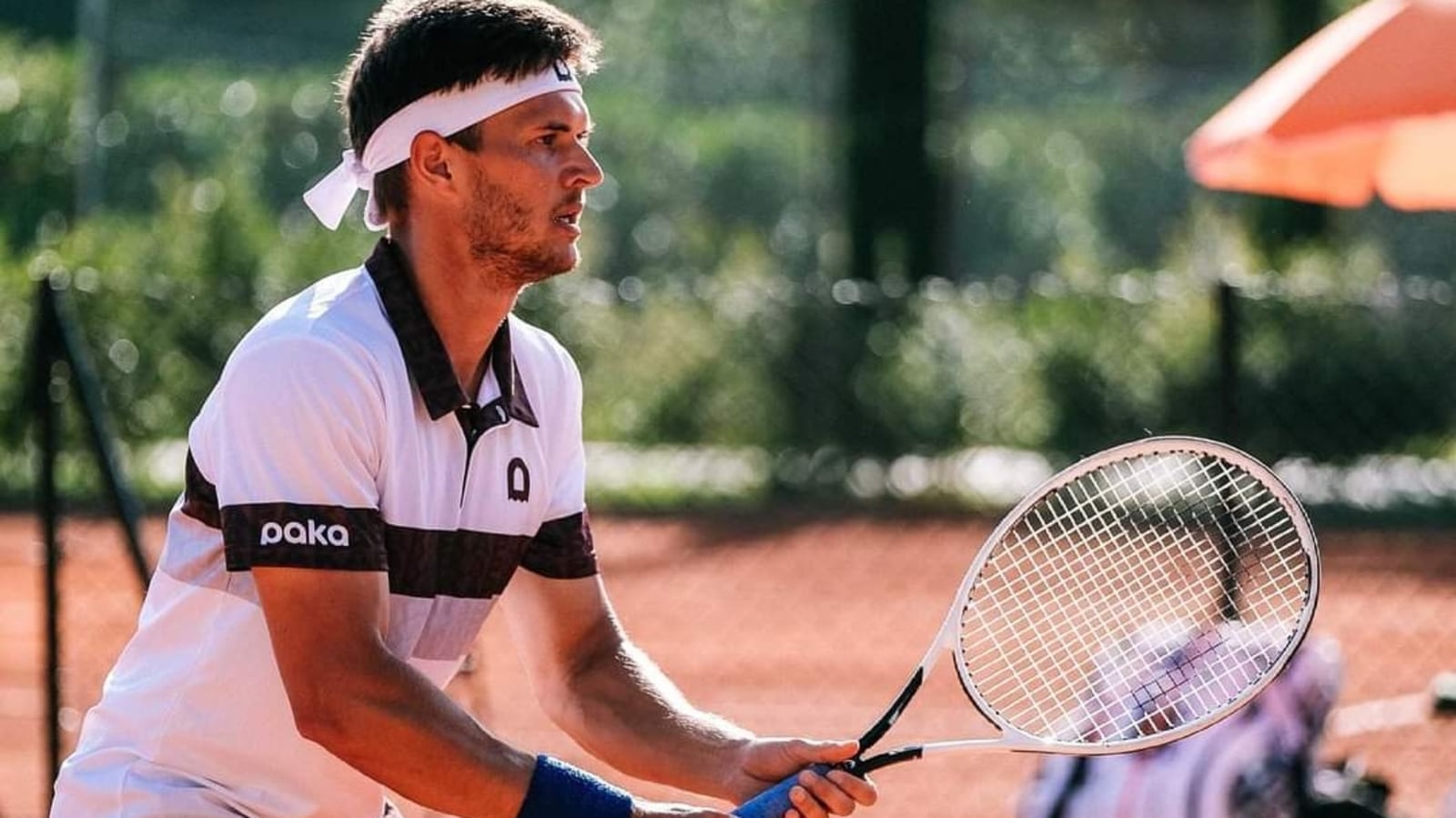Home bombed, family forced to flee: Ukraine’s Orlov plays on amid the war
Ukraine’s Vladyslav Orlov had finished playing in an ITF event in Bengaluru and landed in Spain on February 24 when he got the news that Russia had invaded. “In a way I was lucky that I was not in Ukraine. Otherwise, I wouldn’t have been able to leave the country.”
Almost nine months on, Orlov is back in India to compete in the ITF $25K Mumbai Open. In the intervening period as the war dragged on, his childhood home near Kharkiv was destroyed in bombing while his family was forced to flee and rebuild a life elsewhere.
Also Read | Novak Djokovic sets up meeting with Casper Ruud in ATP final championship
Orlov helplessly followed it all from afar, hopping from one country to another to play tournaments, the heart in his home and the mind away from tennis.
“Since the start of the war until maybe August-September, it was very tough for me. A lot of thoughts in my head. A lot of sleepless nights,” says Orlov, Ukraine’s No 4 men’s player ranked 408 in the world.
“My house was destroyed. My city was bombed, almost every day since it all began. I didn’t have a home. I couldn’t come back to a home to rest. I had to keep travelling.”
With an eye on Ukraine, Orlov competed in Turkey, Tunisia, Croatia, Bosnia, Bulgaria, Serbia, Israel and many other European countries. It was during one of the tournaments that the 27-year-old read about the bombing of his village near Kharkiv.
“I read 90% of the houses were destroyed by missiles. I checked for some more information and saw photos of my locality,” Orlov says. “My heart sank.”
He also owns an apartment in Kharkiv–one of the worst affected cities–but “I don’t know how it is”. “Almost everyone has left the city. Maybe 10% are still there, probably because they don’t have a place to go. Whoever had the opportunity to leave have left.”
Like his mother and brother, who drove out of Kharkiv within hours of the first strike. “They just jumped in the car and left. They drove for three days straight. There was heavy traffic, patrolling, bridges destroyed, a lot of mess.”
They’re now in Lviv, a town near the Poland border, in a rented apartment. The situation there is a bit calmer though they still have to rush to the basement when the warning alarm goes off. Orlov is in constant touch over phone.
“I hope so,” he says, when asked if his family is safe. “It’s a tough life. It’s survival. Now we have problems with electricity, internet, heater. It’s winter in Ukraine and the temperature can fall to minus 20 degrees. The situation is…how they say—stable but bad.”
For months, Orlov spent day and night scrolling through news updates. “You go crazy,” he says.
It affected his tennis as he lost a few first-round matches on the trot. Meeting his mother in Europe in late May for the first time since the war helped. In September, Orlov won a $25K ITF event in Pirot (he beat a Russian in the semi-final) and went all the way in another tournament in Jerusalem this month.
“After a point, you have to focus on something. For me, it was going on the court, practicing, playing, fighting. At first it was not working well, but after a point it did,” he says.
Orlov can go to Ukraine now, but “most likely I’ll have to go in the army and fight”. He says: “It’s complete mobilisation. Almost all men have to fight.”
Former Ukrainian tennis pros Sergiy Stakhovsky and Alexandr Dolgopolov were among those defending their land. “Almost all Ukraine’s active men players were outside (the country). We have to keep playing because this is our job and life. We have to do this and not fight,” Orlov says.
On the tour, Orlov could feel the support from the larger tennis community. “Some tournaments gave free hospitality, some people gave me a place to stay in Germany,” he says. “There’s a lot of support from different people in different countries. So many good people around the world with a kind heart.”
While the Russian tennis federation had been suspended by ITF, its players can still play on the ITF, ATP and WTA tours sans their representational country flag; only Wimbledon had banned Russian and Belarusian players. Orlov wants Russians and Belarusians completely barred from tournaments, though he knows the tennis bodies won’t do that due to the money involved.
“A lot of them (players) are silent and don’t say much about this, still showing the pride of their Russian flag, their country, their president. It’s very tough to distinguish good Russians and bad Russians, so they all have a responsibility for what’s going on,” he says. “For example, if I was Russian, I would feel very guilty, very ashamed, very sorry for every Ukrainian.”
For now, Orlov will head back to Spain for pre-season training. He hopes to return to Ukraine at some point in the future, though he has no idea when that day will come. “I’m patiently waiting for that. Hopefully, I can go back to my home one day.”
For all the latest Sports News Click Here
For the latest news and updates, follow us on Google News.

